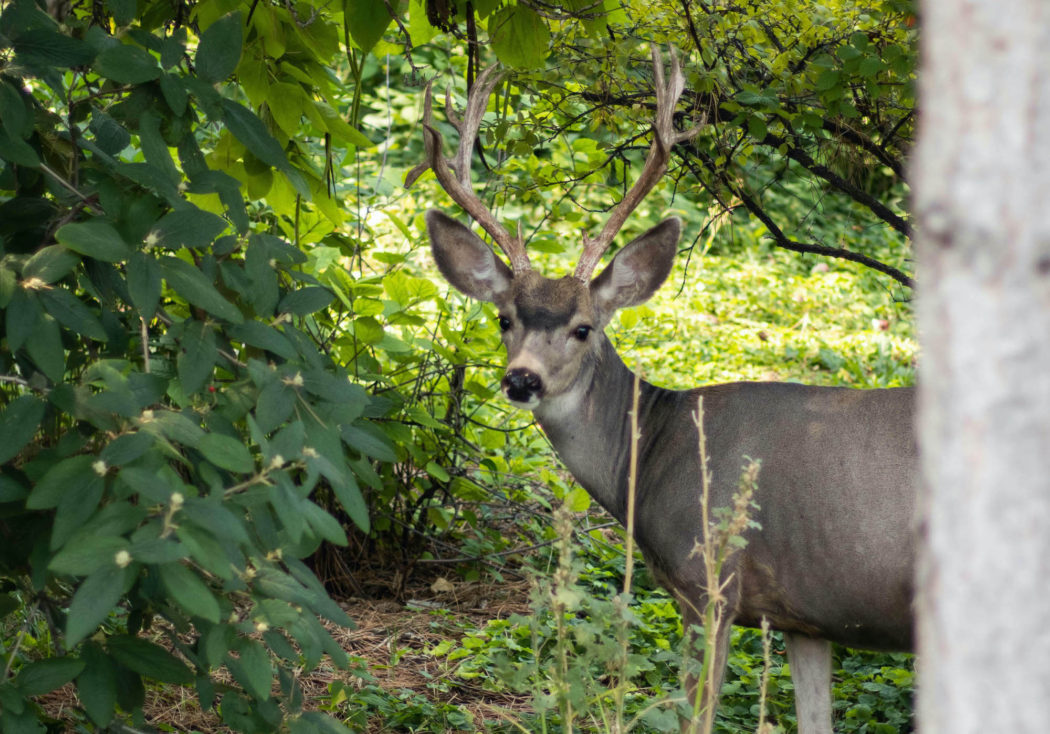Opinion: Utah baiting laws harm hunters
In July 2021, Utah passed House Bill 295, making baiting big game illegal. According to the Utah Division of Wildlife Resources, the bill “restricts the baiting of big game animals (like deer and elk) when hunting in Utah.” Hunters can still use bait during the summer months while they are scouting an area they plan to hunt in the fall, but “they must remove the bait before the hunt — with enough advance time that the animal isn’t still being lured to that area,” according to the Utah Division of Wildlife Resources.
The bill, which passed 63-6 in the House and 22-5 in the Senate, defines baiting as “intentionally placing food or nutrient substances to manipulate the behavior of wildlife for the purpose of hunting or attempting to harvest big game.” Violations under the new baiting law may result in criminal charges ranging from a class B misdemeanor to a third-degree felony, and may also lead to the suspension of hunting privileges.
Other states have also passed bans on baiting, such as Michigan’s 2018 baiting law. In 2019, Ted Nugent, affectionately called “Uncle Ted,” testified in support of a bill to reverse the ban. He slammed Michigan state officials as “liars” or “stupid” for supporting a ban on baiting deer and elk and said, “the ban will spark civil disobedience across state.” I believe the same is true for Utah’s ban.
Baiting has a long history in hunting and fishing. Hunters have used bait for big game since the dawn of time. While Utah’s baiting law has good intentions in preventing chronic wasting disease, or CWD, it harms hunting conservation by deterring new hunters from entering the sport and paying the hunting fees that conservation depends on. The baiting ban also cuts into the state’s economy and criminalizes hunters by the simple act of baiting game.
Advocates for anti-baiting laws claim they are trying to prevent or eradicate big game diseases, but these arguments do not seem to be based in science and are yet another example of powerful individuals trying to control something they know nothing about, and in the process harm what they claim to believe in.
Any avid hunter or wildlife watcher will tell you that deer and elk are chewing on the same branches, licking and grooming each other, and eating the same food. Wildlife behavior will not change or be controlled by man through any hunting law. Various studies have shown animal-to-animal contact is the main point of transmission and that infectious prions can enter the environment through “saliva, feces, urine, blood or placenta from infected animals, as well as by decaying carcasses.” They are also transmissible through the soil and “grass plants bind, retain, uptake and transport infectious prions that create the disease.”
I will be the first one that admits wildlife is a right and needs to be regulated, but the ban on baiting big game does nothing more than handicap conservation and will rob hunting revenue from the state of Utah, just as it did in Michigan. If anything, we should be regulating the types of bait used and not ban baiting altogether.
Less hunters means more deer and elk and more deer and elk means increased odds of transmission. By deterring hunters from the sport, it has the opposite effect to promote big-game diseases like CWD by allowing the herd populations to grow larger and interact more often. Instead, we should allow hunters to thin the herd during high infection seasons through the use of bait, slowing or preventing the chances of infection. We should promote hunting laws that allow the hunting industry in Utah to grow, providing a robust conservation community. I think we should listen to Ted Nugent when he said, “Hunters should have no ‘stranglehold.’ Let hunters bait deer and elk.”
Stop criminalizing hunters and let them do what they do best — hunt.

Keaton Hagloch is a public health major and has a passion for politics and writing. He loves the outdoors, playing the guitar and spending time with friends and family.
khagloch@aggiemail.usu.edu

